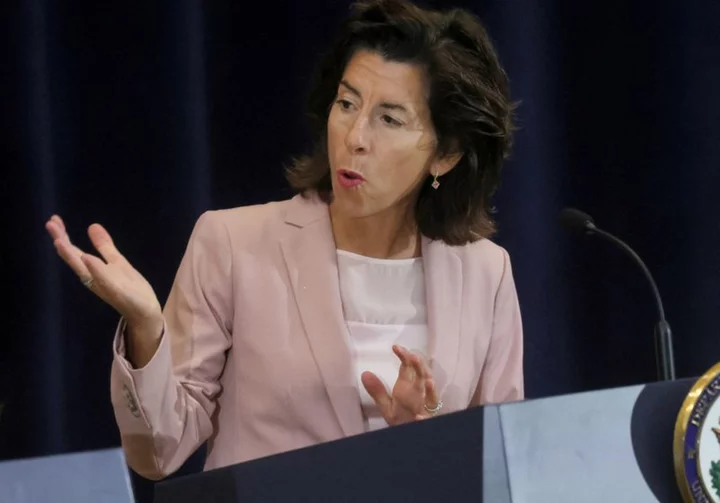By David Lawder
SAN FRANCISCO Countries in the U.S.-led Indo-Pacific Economic Framework have agreed on two more "pillars" of the initiative, covering cooperation on clean energy and anti-corruption measures, U.S. Commerce Secretary Gina Raimondo said on Thursday.
Ministers from the 14 IPEF countries also formally signed the previously agreed text of a third pillar, covering supply chain resiliency, at a meeting during the Asia Pacific Economic Cooperation leaders' summit in San Francisco.
The agreements on three of the four IPEF pillars leaves the initiative's trade pillar in limbo, after negotiations over the past week failed to produce a deal.
The lack of an IPEF trade deal is a setback for the Biden administration. It had aimed to showcase the initiative during the APEC summit as a symbol of its economic re-engagement in Asia, providing countries a counterweight to China's growing clout in the region.
But Raimondo said that the progress on supply chains, clean energy and anti-corruption had generated "tons of enthusiasm" from IPEF partners.
IPEF "is solving problems in supply chains, in infrastructure, in climate that are highly relevant to our partners," Raimondo said.
The member countries also signed off on an "overarching agreement" that Raimondo said will make IPEF more "durable" by creating a ministerial-level council to review and manage all four pillars, with meetings annually. It also creates a separate commission that focuses on the Commerce-led pillars.
Raimondo said the clean energy agreement will create avenues for more private investment into IPEF member countries to accelerate their transitions to low-carbon energy sources, including a $30 million "catalytic capital fund" that will help develop "bankable" clean energy products and provide countries technical assistance.
A separate group of private sector firms and non-profit groups will focus on mobilizing climate investments in IPEF countries, she said.
On the pillar aimed at fighting corruption and tax evasion, a senior U.S. Commerce Department official said the agreement calls for both legally binding and non-binding requirements for transparency on anti-corruption and tax administration laws.
But the official said there would be no traditional dispute settlement system to enforce compliance with the anti-corruption provisions. Instead, the text calls for new capacity-building tools to help countries develop better institutions and compliance.
Countries participating in IPEF are Australia, Brunei, Fiji, India, Indonesia, Japan, South Korea, Malaysia, New Zealand, the Philippines, Singapore, Thailand, Vietnam and the United States. All but India and Fiji are also members of APEC.
(Reporting by David Lawder; editing by Christina Fincher)

